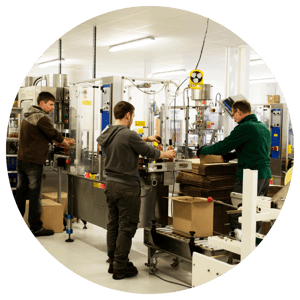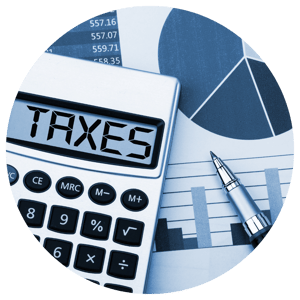Written By: MB Group
The importance of manufacturing in any nation cannot be understated. This is why different states offer opportunities for tax exemptions for industrial processing. Manufacturers are therefore able to enjoy cost savings.
However, there is a catch to these exemptions. First, you will need to grasp the definition of the production's starting and ending point according to your state. The common exemptions include those for equipment, machinery, and consumable supplies. Also, the exemptions in most cases do not compromise all that is within the firm. Failure to know where these exemptions start and end causes missed chances for hidden liability or tax savings.
There are two major approaches or theories that are applied by different states. These are the Direct Use Standard and Integrated Plant Theory.

The approach is such that only equipment and machinery used directly falls within the exemption. This means that exempted machinery and equipment should directly change the physical product.
In this theory, equipment and machinery necessary and important to manufacturing can benefit from sales tax exemption for manufacturing.
Manufacturers must understand the approach their state uses. The theories of exemptions have a bearing on hidden areas that mostly trip up firms. States will have varying definitions of when production commences and ends. Therefore, it will be important to fathom these guidelines to manage taxability.
Let's take material handling equipment, for example. Are forklifts exempt or taxable if their purpose is to take finished goods to the storage? What if their application is taking raw materials to the production line?
Acquiring knowledge on how limited or extensive sales tax on factory machinery purchased is can also affect other important areas. These include maintenance equipment, plant lighting, foundations, and safety equipment.
Statutes will not give a direct answer. However, you will find loopholes by going through the regulations. Also, providing sales tax training on tax exemption to your employees will lead to big savings for your company.
Texas is one of the states with many tax exemption opportunities. For instance, a close look into the Texas Regulation 34 TAC Sec. 3.293 will show that a restaurant qualifies for a manufacturing exemption on equipment purchases. The regulation further states that caterers can claim manufacturing exemptions on various qualifying equipment, for example, mixers used in food preparation.
Caterers in Texas can reap the benefits of the exemptions as the regulation considers a caterer a manufacturer. This is beside the fact that caterers can never identify themselves as manufacturers.
 You will need to be rigorous and careful when researching manufacturing tax exemptions for your industry. For instance, Texas manufacturers can claim exceptions when acquiring electricity and gas that powers manufacturing equipment apart from equipment used in food storage or preparation (Tax Code, 151.317). A bakery, restaurant, or caterer can claim tax exemptions on equipment but this does not cover the energy used to power it.
You will need to be rigorous and careful when researching manufacturing tax exemptions for your industry. For instance, Texas manufacturers can claim exceptions when acquiring electricity and gas that powers manufacturing equipment apart from equipment used in food storage or preparation (Tax Code, 151.317). A bakery, restaurant, or caterer can claim tax exemptions on equipment but this does not cover the energy used to power it.
Being rigorous may come in handy in that you may come across extra savings that apply to your industry other than what you were initially hoping for. For example, there is another hidden exception in the Texas regulation. Ventures that process food for sale are eligible for tax exemptions on the packaging and wrapping of the food.
The exemption covers paper containers, plastic containers, disposable cups, toothpicks, and plastic utensils. These are not covered as manufacturing but rather the resale exemption.
As you can see, we dug a little into the regulations, and we have uncovered all sorts of exemptions you can enjoy. Therefore, take your time to go through your state’s regulations.
It is critical to enlighten your employees on up-to-date state tax exemptions and teach them how the laws apply to your business. This will save the business a lot of valuable time and money.
There are different types of training available, from accounting firms to independent consultants to state revenue departments. Do a little research before settling for the best course for training your employees.
One of the best approaches is training your plant and purchasing workers on the fundamentals of sales and applying taxes. With that knowledge, they will make the best tax decisions. The main goal is for workers to fathom the sales and use tax rules when making purchases.
Another goal is for purchasing and plant workers to know sales and use tax fundamentals to provide the necessary information to the A/P. The A/P will, in turn, make the right decisions. Therefore, liaising between the accounts and purchasing employees can make the best decisions, saving your company money in taxes.

Texas is one of the states with a broad sales tax exemption on manufacturing equipment. It wouldn't have crossed your mind to think that a restaurant would qualify for a manufacturing tax exemption.
It is very important to go through the manufacturing tax exemptions in your state and dig deep into them. This applies even when you are not a traditional manufacturer. Saving on taxes will go a long way in reducing the cost of operations. If you would like assistance with navigating these exemptions for your business, we encourage you to reach out to the team at the MB Group to get started today.
Related Blog: Common Tax Deductions Business Owners Miss
Tags: Business Tax
Running your own business is something that appeals to many individuals. While it might be tempting to jump into the first opportunity that presents itself, taking the time to thoroughly evaluate the...
Read MoreMost business owners look for ways to increase profits, lower tax liability, drive more efficient growth, and find more time for life. Fortunately, you don’t have to look much farther than an...
Read MoreSmall business owners have a lot on their plate, and taxes are just one of the many things that can easily slip through the cracks. Unfortunately, not properly managing your taxes can lead to costly...
Read More